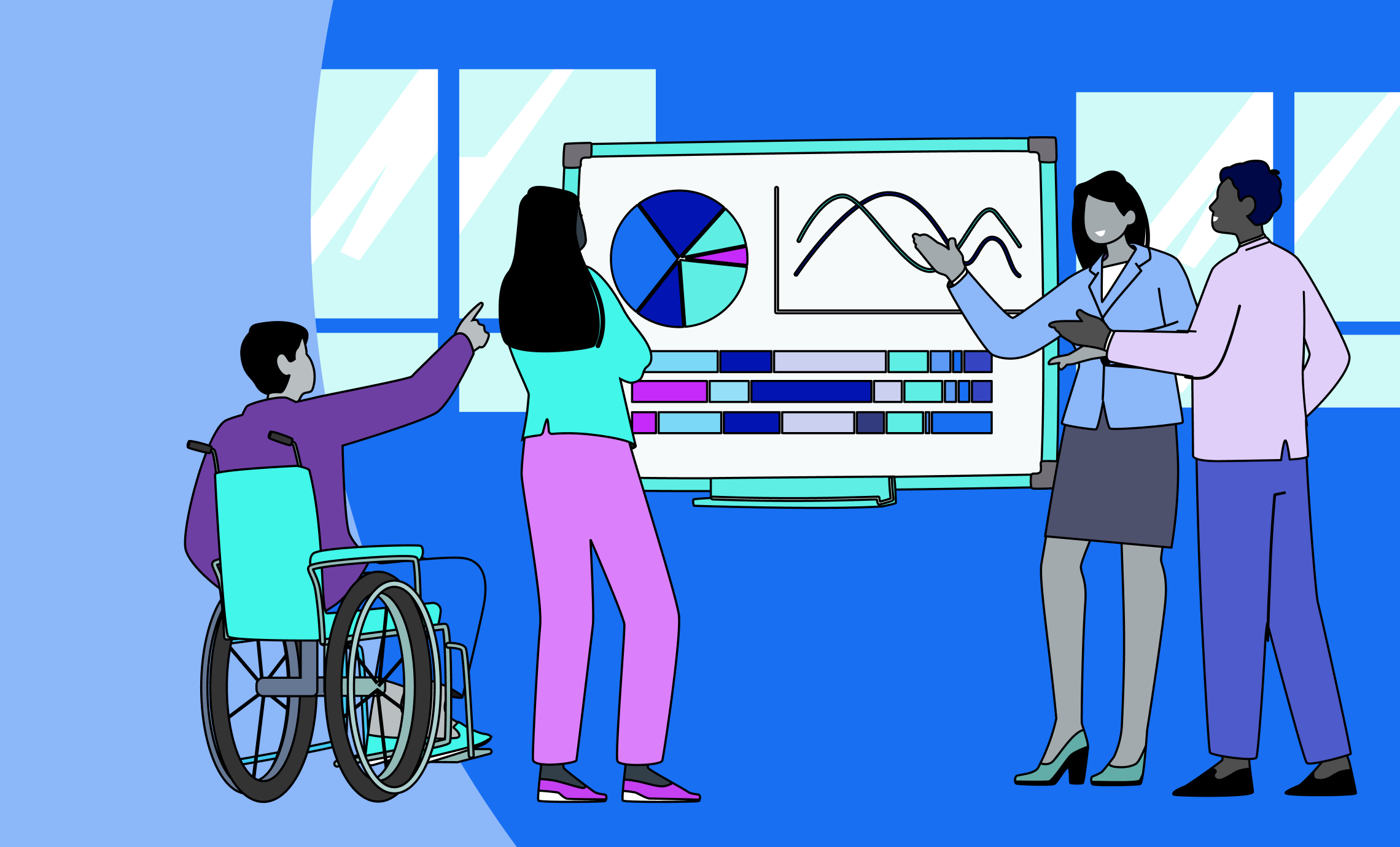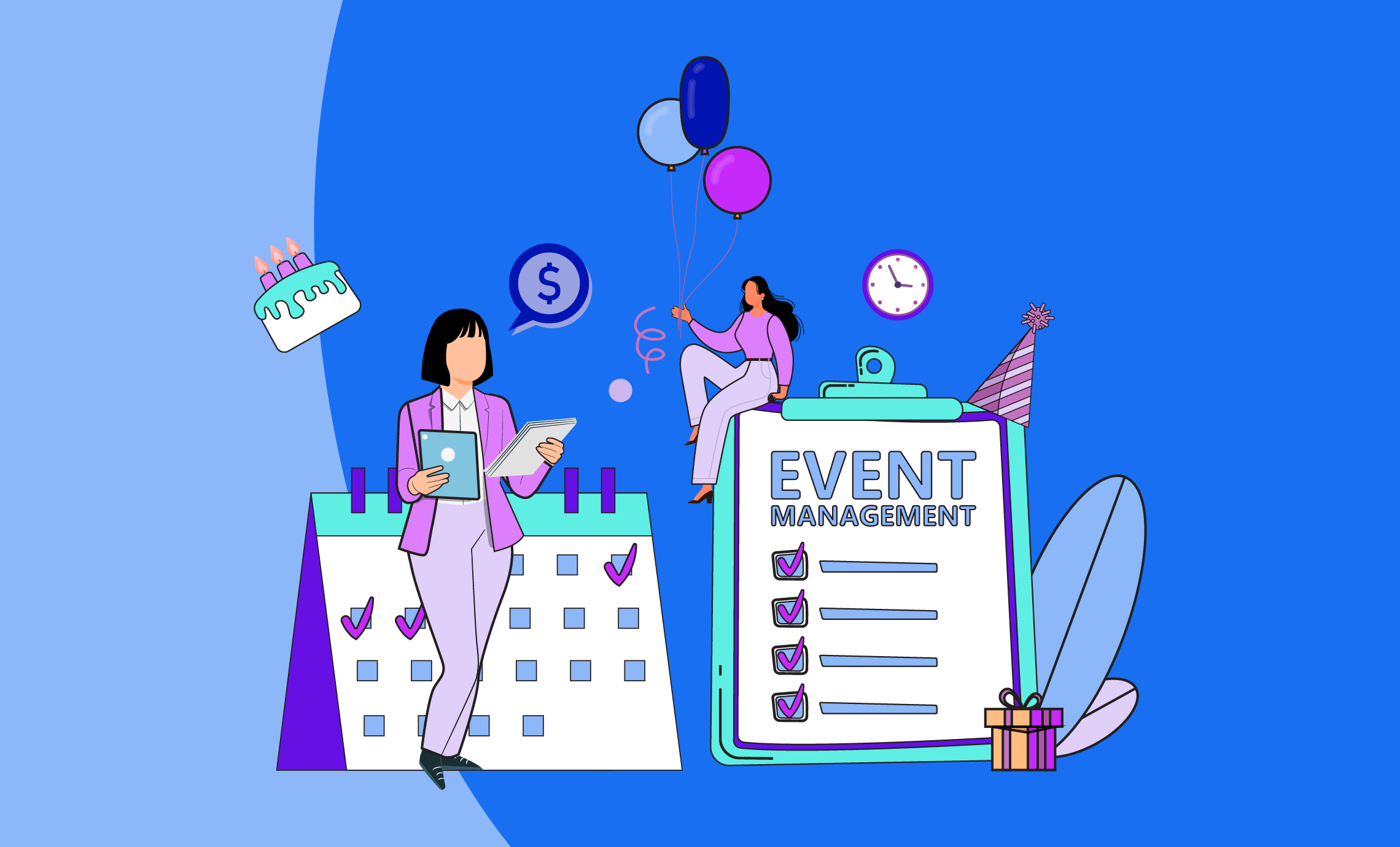Much like any type of relationship, an event requires strong communication to turn out successful. This includes communicating with your guests and speakers before the start of the event.
These important people are the real highlight of the occasion. Thus, establishing a positive relationship and smooth events communication with them can help you improve the quality of not only your current event but also future ones. It also helps you attract a larger audience and drive more sales.
Wondering how to communicate before an event with guests and speakers? We’re providing a comprehensive guide to help you strengthen your communication strategy, so keep scrolling.
Why Communication Is Key
Maintaining clear and effective communication from the start to the end and even after the event is crucial in providing the best results. First, the speakers are your ticket to success. They share valuable insights and expertise with your guests.
Audience engagement also depends on them. The quality of their presentation will either impress or make your audience feel bored and sleepy.
That is why event planners should communicate their expectations before the event. Find out their strengths and other possible roles they can take for your event.
At the same time, communicating with your guests throughout the event will help you make sure you’re meeting or even exceeding their expectations. You can address their concerns and possible hiccups early on and ensure the best event experience for them.
Just as how your speakers and guests are investing in your event, you’re also investing in them. Hence, make the most out of your investment by ensuring clear and solid communication.
How To Communicate Before an Event with Guests
Events communication can be an overwhelming task if you’re not organized and certain of what to communicate in the first place. Here are the things you should communicate and the corresponding channels.
What To Communicate with Guests Before an Event
Like with any event advertisement, you should promote and exhibit pertinent event details to your guests. This way, they’ll know the cost, sequence, and flow of the event. Also, these initial guidelines will help them see if the event’s theme or subject is in line with their interests and if they should attend or not.
- Announcement: No matter how promising or meaningful your event is, everything will go to waste without a proper announcement. Thus, specify the date and venue of the event.
- Event details: From the registration period to fee inclusions and other payments for more sessions, provide the relevant details of the event.
- Ticket sales and registration: Tell potential participants how or when they can avail of early-bird discounts to promote early registration.
- Speakers: Introduce your speakers ahead of the event with short bios, fun facts, and professional images. Doing so will entice potential guests to join the event.
- Program: Provide a preview of the event, including the activities, topics, and themes. This way, potential participants can see how beneficial the event is for them, and they can adjust their schedules in advance.
Preparation Before Communicating with Guests
To relay an effective and persuasive message, you must make adequate preparations. Your guests will likely have questions, so cover all bases and conduct the necessary research. Prepare answers to common and general queries regarding the virtual event like:
- How will this event benefit me?
- How much is the registration, and what are the payment options?
- How can I get my login details and access the event or session?
- Will there be available recordings of the event?
Failure to provide a clear answer can make your potential guests reconsider and lose interest.
Moreover, prepare your event’s online platforms. With modern technology, you’re no longer limited to face-to-face interactions. In fact, there are roughly 4.6 billion social media users globally.
You can utilize several online mediums. An event website with a comment section gives your guests a place to ask questions and give feedback. Also, popular social media platforms not only advertise your event but also give you an avenue to have discourse with guests. If you want a more professional touch, email marketing is another great option.
Through these online platforms, potential guests can send their queries at different times, wherever they are, prior to an event.
Dos and Don’ts When Communicating with Guests
There are practices that you must observe when talking to guests, namely:
- Making simple yet precise replies: Your response only needs to convey general matters regarding the event or certain specifics depending on the guest’s query. A couple of short sentences, broken into a few paragraphs, with an easily readable font should do the trick.
- Personalizing replies: Roughly 80% of people are more inclined to transact or interact with someone who offers personalized correspondence. While you can make a template for general information matters like pricing and registration procedures, personalize your response by at least mentioning your guests’ names.
- Responding promptly. A fast reply is essential, given that 71% of the younger generation consider a quick response important to a satisfactory customer experience. Responding too late or failing to respond at all will make your guests lose interest. They might even feel disrespected and cause negative press.
While there are best practices to improve your communication with guests, there are also habits you must avoid, including:
- Showing a lack of manners: Your courteousness is as important as your knowledge about the event. In trade and communication, those who incorporate social skills in their strategy are 73% more likely to reach their quota than those who don’t. Hence, to establish a good rapport with your guests, avoid showing unprofessional conduct and practice maximum tolerance.
- Spamming: Nothing annoys a guest more than receiving spam messages like irrelevant and repetitive emails about your event. Manage the frequency of sending messages. Also, sift through their content to make sure that they’re all important and that nothing is repeated.
How To Communicate Before an Event with Speakers
Event planners and event marketers know that speakers can cause the success or failure of an event. That is why you should know about events communication, including what and how to communicate and the dos and don’ts.
What To Communicate With Speakers Before an Event
Given that someone has already agreed to speak for your virtual or hybrid event, you should communicate the following after thanking them for their participation:
- Length and location of the presentation
- Certain requirements and restrictions
- Presentation template with detailed instructions
- Clarification of whether the speaker presentation would be filmed and release forms
- Hotel and room details
- Main contact person
- Calendar invites, so they won’t forget or get confused
- A “what you should know” email
- Tech check day with your speakers, so you can test the tools and connectivity before the event
- Email templates that speakers can easily share with their partners and followers
How To Communicate Effectively With Speakers
Event speakers have the knowledge, skills, and expertise that will be beneficial to you, the guests, event marketers, event planners, and more. However, without proper events communication, their talents might just be in vain. To ensure effective communication, perform the following:
- Share guidelines for the presentation: Sometimes, even if you have the best event speakers, guests will end up sleeping if the presentation is boring. Hence, help your speakers ace their presentations by giving them guidelines. These include the slide format, length of the speech, and some suggestions.
- Talk about your audience engagement strategies: Event marketers and event planners should also be able to communicate the engagement strategies with the speakers to help them choose the most effective one. For example, discuss whether live polls or tests will be ideal. You can also consider making the presentation more engaging by letting the guests intervene more than expected.
- Encourage them to share information about the event: Does your speaker have a large social media following? Are they active on different platforms? If so, ask them to post about the event while using your hashtags. Just make sure they’re willing to collaborate.
- Discuss the Q&A session flow: Through the Q&A sessions, guests can understand and appreciate the presentation or event better. To encourage participation, discuss with your speakers ways to organize the session more effectively. For instance, consider having the Q&A session in the middle of the presentation. Then, you can let the guests send their questions through different online platforms. This way, those who hesitate to ask during the event can still participate and receive answers to their questions.
Dos and Don’ts When Communicating With Speakers
To facilitate a good working relationship with your speakers, practice healthy habits, such as:
- Giving speakers enough information: This includes talking about the kind of audience that they will be interacting with, the event location, topic, theme, and other general and specific details of the event. Doing so helps them prepare for the event and execute their presentation well.
- Using polite language: Whether you’re answering the speakers’ queries, discussing your audience engagement strategies, or explaining the specifics of the event, remain courteous to avoid unnecessary complications and maintain professionalism.
- Providing constructive feedback: Make sure to explain why their presentation is great or needs improvement. Also, make your comments personalized too to show them that you care about them and not just your brand’s reputation.
Your speakers spend a lot of time and effort to achieve excellent results for your event, so make sure to avoid the following:
- Being too pushy: While you can ask your speakers to advertise your event on their socials, don’t be forceful. Instead, explain your plans and highlight the benefits, and then assess whether they’re comfortable doing them or not.
- Rejecting suggestions: While event planners do most of the planning, it doesn’t mean speakers’ ideas are not welcome. Listen to and acknowledge their suggestions to make them feel valued and not just a disposable tool for your event.
- Interrupting while they’re speaking: Whether you’re meeting your speakers in person or online, do not interrupt them when they’re still speaking. Otherwise, they might lose their train of thought and feel disrespected. Show them that you care about what they say and understand their message first before raising your questions and sharing your recommendations.
Benefits of Effective Communication Before an Event
Knowing how to communicate before an event with guests and speakers as well as other people responsible for carrying out the event lets you enjoy several benefits. These include:
- Increased brand awareness: With the right events communication and marketing, more people can get to know your brand. Speakers and attendees may even share posts about your event and company itself, making your brand more visible to a wider audience.
- More leads: Among marketers, 64% utilize events to find new business opportunities and prospects, while 63% utilize them for lead sourcing. While not all prospects will convert during your event, you can still nurture these leads and eventually drive conversion.
- Enhanced credibility: By employing an effective communication strategy, you can build credibility and highlight your expertise in your respective industry. Once prospects see the value you’re giving them, they’ll want to work with you or patronize your service.
- Strong relationships: Events allow you to build positive and lasting relationships with potential customers and partners. Hence, be sensitive to their needs, share compelling stories, and maintain good communication with them.
- Better sales: By having an established relationship with guests, speakers, and other stakeholders, you can expect higher sales too. Proper communication allows you to identify their pain points and address their needs. This results in higher conversion rates.


